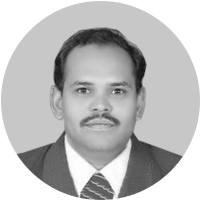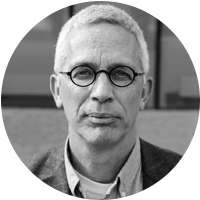
PROJECT
Introduction to Stress Management Strategies and Positive Psychology to Secondary School Teachers
The Course is designed for the school teachers who will be engaged with the secondary school children. As far as present school set up is concerned there is a strong need of teacher orientation about stress management strategies and positive psychology. In the curriculum of B.Ed. there is a course of Childhood and Growing Up but teachers should have more knowledge about how to deal with adolescents. This course is a small attempt in this regard. Certainly teachers will get benefit of this course for the implementation of various strategies in the school. Besides this when teachers will implement these strategies for their students; future of our society and country will be secured.
In this course teacher trainees will learn about what is meant by stress?, what are different symptoms of stress?, Various strategies to manage stress, Introduction to Positive psychology. REBT Technique, Time Management, Study Habits, Assertiveness, Importance of Yoga, Mediation, Mindfulness, Autosuggestions, Self-esteem and Many More. The course provides a mix of theory and practice, of thinking and doing, and opportunities to share ideas, experience and resources with other participants through discussion forum. Students will also get chance to discuss various scenarios from the school.
Need of the Course
Times of India December 2011 reported student suicides have increased 26% from 2006 to 2010, with Bangalore, Delhi, and Mumbai accounting for most victims, in that order. And this is just the official data. While 5,857 student suicides were reported in 2006, the figure jumped to 7,379 in 2010, according to data released by the National Crime Records Bureau. In other words, 20 students killed themselves every day in 2010, something both academicians and mental health professionals blame on a flawed education system where performance pressure ranks above all else.
• Mumbai is the city with the third highest number of student suicides.
• Maharashtra is the state with the highest number of student suicides, followed by West Bengal.
The country, with about 16% of the world’s population, has one-third of all the globe’s recorded suicides, according to World Health Organization statistics from 2012. The rate is highest among Indians 15 to 29 years old.
Course Layout
Total Credits – 2 (30 Hours) Six Weeks (5 hours per week) Target Group: Teachers in secondary Schools. Aim of the Corse: The course aims to enable secondary school teacher to implement stress management strategies for the school children. Expected outcomes of the Course. At the end of the course learners will be able to:
– Identify the psychological and physiological symptoms of stress.
– Understand the importance of positive psychology in life.
– Tryout various strategies for stress -free life.
– Conduct simple meditation technique.
– Guide about framing autosuggestions.
– Tryout mindfulness technique. – Develop time – management skills.
– Understand the REBT technique
– Guide adolescents about Decision making skill.
– Understand yogic postures and breathing techniques for relaxation.
– Understand importance of assertiveness.
– Implement strategies for assertiveness.
– Guide the students about study habits.
Instructional Strategies
Following instructional strategies will be considered for the present course:
• Small Video Lectures
• Orientation through OER (following instructional strategies will be considered for the present course)
• Small Video Lectures- Videos by Course Author as well as Licence free videos from Quality Open Educational resources.
• e-books • Presentations
• Activities
• Discussion forum
Assessment Strategies
For continues Assessment following strategies will be implemented.
• Reflections
• Quiz
• Peer evaluation
• Assignments
Course Components
1) Understand stress.
2) Physiological and Psychological Symptoms of stress.
3) Self –awareness and Improving Self-Esteem
4) Importance of Learning Assertiveness Skills
5) Yoga and Mediation
6) Mindfulness journey towards knowing himself and the world.
7) Framing Positive Autosuggestions.
8) Time Management.
9) Study Habits
10) Introduction to Positive psychology.
11) REBT Technique
12) Various Scenarios and Discussion.
13) Problem solving.
14) Self-appreciation
15) Tips for Happiness
Author

Pravin Kale
Dr. Pravin Kale is an Assistant Professor in P.V.D.T. College of Education, which is a constituent college of S.N.D.T. Women’s University, Mumbai. He has completed. He is serving as a Teacher Educator for the last 19 years. His topic for the Ph.D. was, “Development of Stress Management Program for the Adolescents and Study of Its Effectiveness”. His areas of interests are, Educational Psychology, Counselling, ICT and Instructional System design. He has also taken training of INTEL Teach to the Future for Project Based Learning and integrating technology in education. He is also actively engaged in development of Self Learning Material for the distance-learning students. He is regularly contributing his excellence through scholarly articles and research papers in regional, national and international journals. He has taken training for the MOOC, Moodle and different online platforms. He is interested in serving the masses through designing, developing and delivering online courses.
Mentor
Robert Schuwer
Robert Schuwer is Professor Open Educational Resources (OER) at Fontys University of Applied Sciences, School of ICT in Eindhoven, the Netherlands. In September 2016 he was appointed Chairholder of the UNESCO Chair on OER at Fontys. Since 2006 the majority of his work is about OER and Open Education. Among other activities, he was project leader in the Wikiwijs program, aiming at enhancing awareness on OER and creating a national infrastructure for OER, initiated by the Dutch Ministry of Education. Currently, he is the leader of the track “Towards digital (open) resources” in the Dutch Acceleration Plan for Innovating Higher Education using Information Technology. His current research is on adoption of OER and other forms of open online education by the early and late majority of teachers. He is chairman of the SURF Dutch Special Interest Group Open Education.

